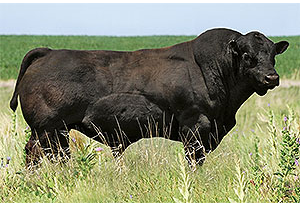 We have all heard it said that cleanliness is next to godliness. As it turns out, cleanliness may also be an indirect, but important, part of achieving good cattle weight gain.
We have all heard it said that cleanliness is next to godliness. As it turns out, cleanliness may also be an indirect, but important, part of achieving good cattle weight gain.
Manure and flies are two things that seem to just go with the territory when there are large animals on the property. There are good reasons to clean up manure as soon as possible, though. One obvious reason is the pollution risk from runoff that may end up contaminating water sources. Another less obvious reason is the impact that flies can have on an operation.
Manure and waste hay make an ideal environment for flies to lay their eggs. Cleaning up this waste as soon as possible helps to reduce fly populations in the same way that draining standing water helps to reduce mosquitoes. The problem with flies is that they are not just a nuisance, they are an economic problem as well.
Recent Research in a Nebraska study found a direct correlation between the presence of stable flies and decreased cattle growth, according to a report in Drovers. Cattle weight gain begins to decrease when as few as 20 flies per animal are present and heavy infestations can decrease weight gain in cattle by one-half pound per head per day due to flies.
Insecticides are obviously one way to treat fly problems once they have already started, but removing waste hay, manure and any other material that attracts flies can help to avoid a fly problem in the first place. Avoiding a fly problem saves the time and money of trying to treat them with insecticides.
Starting with animals that have high-quality genetics is important but good health and insect control also play a role in growing profitable cattle. Flying H Genetics is a family-owned business that has been serving the livestock industry since 1948. Call us today at 308-962-6500 to learn more about how quality genetics can improve the bottom line of your operation.



